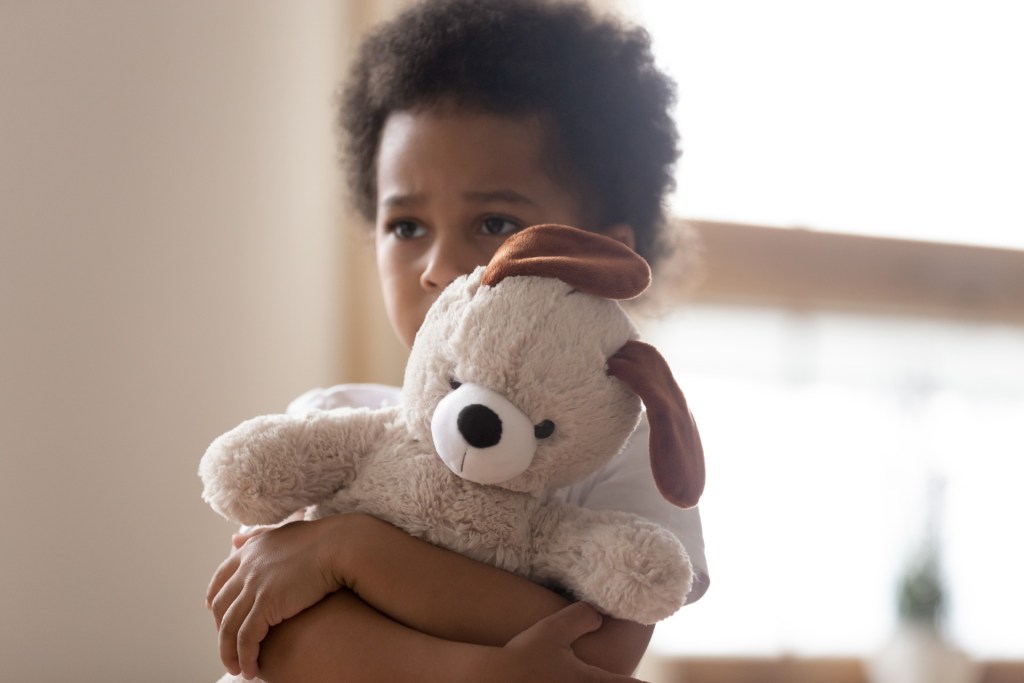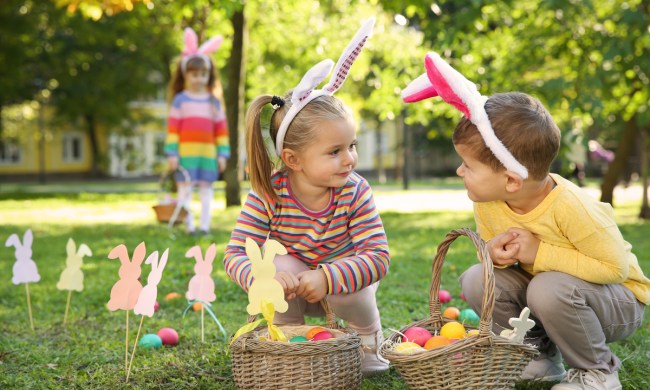Regardless of your parenting style, someone will have something to say about it. With the popularity of social media, different parenting styles have made headlines over the years, with uninvolved parenting increasingly joining the discussion. Although it sounds like a parenting trend that should be lumped in with free-range parenting or permissive parenting, according to the experts, uninvolved parenting can actually become neglect and cause long-lasting emotional problems for kids.
Keep reading to find out what the experts we’ve talked to have to say about the parenting style known as uninvolved parenting.
Free-range parenting vs. permissive parenting vs. uninvolved parenting

Deborah Porter, a certified life coach and regular contributor on CBS’s “Virginia This Morning,” explains the difference between free-range parenting, permissive parenting, and uninvolved parenting:
Free-range parenting provides love and involvement but allows for natural consequences to be in place. Permissive parenting is low demand and high responsiveness. Uninvolved parents are oftentimes raised by uninvolved parents and don’t yet have the skills to parent differently.
Usually, the parents still meet all of their child’s physical needs, but they are unengaged in the emotional aspects of parenting. Porter elaborates that although uninvolved parenting styles are often unintentional, the parents are emotionally unavailable and may be uninterested in the day-to-day life and activities of their children.
Dangers of uninvolved parenting

Dr. Roseann Capanna-Hodge, psychologist and founder of Dr. Roseann Capanna-Hodge, LLC and The Global Institute of Children’s Mental Health explains the dangers of uninvolved parenting:
Without secure attachment, children of uninvolved parents lack that anchor that comes from nurturing and caring relationships, which means that they are at risk for a host of mental health-related, behavioral, and emotional problems.
Does a lack of involvement really constitute neglect? In some cases, an uninvolved parent may also neglect the physical needs of a child. This can include not providing consistent meals, appropriate clothing for age or season, or sanitary living conditions — all of which can constitute neglect.
Some may argue if a parent is providing the basic needs of a child, then the child is not experiencing neglect, however, Capanna-Hodge disagrees. She believes all uninvolved parenting is neglect. “Uninvolved parenting is essentially neglectful parenting, as these are parents who fail to provide their child with safety and structure and are indifferent to their child(ren).”
What are the effects of uninvolved parenting?

Uninvolved parenting can have an enormous negative impact on children, especially on their emotional development. According to Porter, the effects of uninvolved parents may include “problems with attachment and deep relationships later in life, anxiety, being emotionally withdrawn, and having to grow up quickly.”
Beyond emotional problems, children of uninvolved parents can also develop mental health-related and behavioral issues. Capanna-Hodge explains, “It is only through secure attachment that the brain and body can self-regulate, and children of uninvolved parents are prone to more self-regulation difficulties, including problems with attention, impulse control, emotional control, anger, and difficulty forming bonds with others.”
What are the pros and cons of uninvolved parenting?

On the surface, parents may believe uninvolved parenting allows a child to be more independent and to learn more problem-solving skills. However, uninvolved parenting is an extreme form of passive parenting that can lead to several issues. There are no pros to uninvolved parenting.
Along with the mentioned emotional and behavioral problems, there are several other cons to uninvolved parenting. “An uninvolved parent may expose children to potentially hazardous things, or put them in dangerous situations because of their lack of rules and indifference. With teens, these types of parents may not care about grades, who their child is hanging out with, or even if they are using substances,” Capanna-Hodge warns.
Examples of uninvolved parenting

Although uninvolved parenting may seem like a style of parenting similar to free-range parenting or another style of parenting that allows the child more choice and flexibility, it’s actually more akin to neglect or detachment.
Capanna-Hodge describes the characteristics of uninvolved parenting as:
- Not setting rules or expectations for behaviors
- Providing little or no supervision
- Showing indifference or lacking an emotional attachment
- Lacking concern for a child
- Showing a lack of interest, affection, or warmth
- Not interacting with a child or participating in activities with them
Most parents want to raise children who grow up to become independent adults. Many theories on how to do this exist and parents may gravitate toward parenting styles that fit their vision of raising successful children. They may also gravitate toward the style of parenting they grew up with.
Can you be an uninvolved parent without realizing it?

You may not think you’re an uninvolved parent, but your actions may show otherwise. Not every parent realizes they have become detached and uninvolved from their children, but it is possible. Major life changes that result in a stressful home environment can cause parents to withdraw. Mental health and socio-economic challenges can also impact a parent’s involvement at home.
Recognizing that you’re feeling uninvolved is a big step in rectifying the situation. If you feel like you’ve been withdrawn from your child and you’re noticing their behavior is changing as a result, don’t be afraid to ask for help. There are many free resources online, through your doctor or even your child’s school. Engage with your child and ask them how you can be more present for them.
If you’re a parent, please learn from what these experts say about the uninvolved parenting style and make the right choice for your children.




